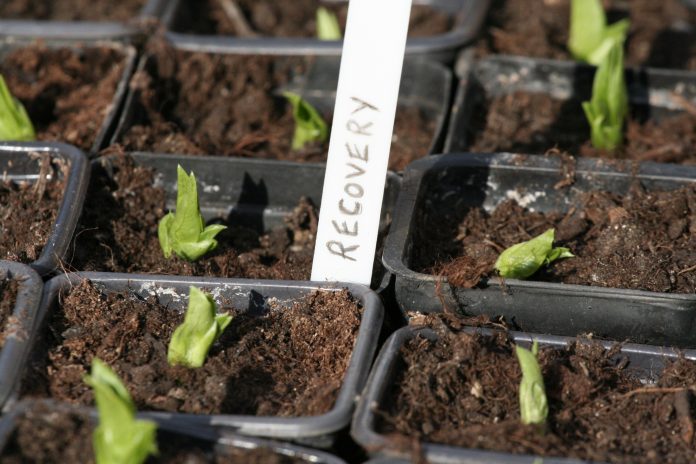Chris Sheen, COO for Sideways 6, explores how employee innovation can play a role in the green recovery from COVID-19
Right before the pandemic, you may have noticed a surge of companies who began positioning sustainability as a focal point in their strategic goals. Anyone on LinkedIn will have seen a stream of commitments from executives heading up companies like Microsoft, Starbucks, P&G, Dupont, and BP publicly announcing bold sustainability targets. But as companies pivot their strategies towards survival, how might this affect goals in sustainability?
The biggest take-away is that it’s not sufficient to anticipate the possibility of a crisis. Many companies were blindsided by the deadly virus which culminated in impromptu reorganisation and a crippling drop in operations. We need to be better prepared, and in a forward-thinking sense, the coronavirus serves as a road test for the climate crisis.
There are some setbacks
There is undoubtedly the looming possibility of an economic recession and with trillions of dollars having been sliced off of the global GDP, funding a carbon-neutral future is more challenging. Several governments have loosened restrictions on waste to help companies focus on survival. Oil prices have dropped which could lead to consumers and companies being less incentivised to invest in green energy. Some districts have also removed bans on plastic bags and single-use plastics as there is a concern for reusing the same item which could spread the virus. As the media remains focused on the rapid devastation caused by the virus, it can be challenging to think critically and focus on the long-term impact of environmental policy. However, there is also momentum building.
Despite the pandemic’s upheaval, the EU remains committed towards the targets in the European Green Deal, announced in December 2019, to make Europe the first climate-neutral region by 2050. 2020 is on track to have the largest ever annual fall in CO2 emissions. As fewer people are commuting, management teams have adapted to remote working through a surge in virtual meetings and social collaboration tools. This could become the new norm. A by-product of the inability to travel long distances is that consumers are becoming much more community-oriented and conscious of the impact on their surroundings. As consumers become more selective with their purchases, we may see an increase in the trend identified between 2013 and 2018 where products marketed as sustainable grew 5.6 times faster than those that were not.
Many inspiring examples of organisations repurposing their resources to support the pandemic have sprung up; Nike is working with Oregon Health & Science University to develop protective clothing for essential workers; perfume factories in France owned by LVMH are now producing hand sanitizer, and the Royal Mint have repurposed their facilities to build protective visors for the NHS.
It is clear that in these last few months the ability for companies to unite with governments and pool their resources to support health systems has inspired the pace at which we can adapt. As we rebuild, it is imperative that we leverage these lessons for a green recovery.
How can your organisation remain committed to sustainability?
As companies align their sustainability targets with ramping up operations, it is vital to listen to your employees and make them part of the conversation. Asking employees from the front-line to the back-office ideas about sustainability unlocks the ability to neutralize waste and maximize operational efficiency. An organic by-product of a sustainability campaign is spreading awareness of the targets you’ve committed to achieving, and in turn enabling your employees to offer solutions. As the examples below will highlight, there is often a direct correlation between sustainability and stronger customer loyalty as it strengthens your brand image, as well as long term cost benefits.
To inspire leaders who have committed to real change and now need to deliver, here are three examples of companies who listened to an employee idea on sustainability.
-
Nestlé
Nestlé has committed to making 100% of its packaging reusable or recyclable and has also announced plans to reduce the use of virgin plastics by one third. Both objectives are set for 2025. In order to meet their 2025 targets of reducing plastic, the InGenius team at Nestlé are piloting reusable and refillable dispensers. The InGenius program at Nestlé encourages employees across the organization to submit their ideas through Workplace by Facebook. A dedicated entrepreneurial team then manages the ideas through the Sideways 6 platform and works directly with the submitters to build tangible business opportunities. The dispensers are currently being trialled in three shops for Purina cat food and Nescafé soluble coffee. Information such as ingredients, nutritional values, and shelf life can be found by accessing product information on a touch screen located beside the dispensers. This innovative mechanism encourages customers to bring their own containers and also offers them flexibility around how much of the product they wish to purchase.
-
PG tips
The anchor in British culture, no matter the weather, no matter the political climate, is a hot tea – the UK is one of the largest per capita tea drinking nations, consuming 156 million cups per day. An employee working at leading tea company PG Tips had a brilliant idea whilst working on the factory floor at Trafford Park, England – he noticed that the end seals of paper tea bags did not have to be so long. He shared with management the idea to trim the paper tea bags by 3 millimetres, which after analysis revealed that it stood to lessen the amount of paper used to make the tea bags by an estimated 15 huge reels every single shift. The idea was listened to, evaluated, and implemented, resulting in €47,500 in cost savings and 9.3 fewer tonnes of paper.
-
Marks & Spencer and Oxfam
Whilst on the floor during a shift, a Marks & Spencer employee came up with the idea of allowing customers to donate used clothes whilst in their stores.
The employee shared with management the idea of encouraging customers to donate clothes by placing clothes-recycling boxes in their branches. The idea was so well-received that it quickly won support from the board and through a partnership with the global charity, Oxfam, was branded as Shwopping. Through Schwopping, donated clothes continue to live on and provide value in three different ways; Resold in Oxfam shops, online, or at festivals, reused in Oxfam’s social enterprise Frip Ethique program, or recycled to processing companies to produce mattress filling or carpet underlay. Because this employee took initiative to share his idea, and there was a willingness from senior leaders to listen, 28 million garments have been donated in M&S and Oxfam shops, worth an estimated £19 million for Oxfam.
A final note on the role of employee ideas.
In order to meet sustainability targets and support a green recovery from the pandemic, it’s evidently beneficial to enable your employees to be part of the solution by giving them the opportunity to share ideas. This will help spread awareness around your commitment towards sustainability and encourage your employees to directly engage with your strategy and contribute to your organisation’s future performance.











